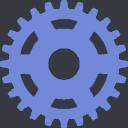-
Posts
1,154 -
Joined
-
Last visited
Awards
This user doesn't have any awards
Profile Information
-
Gender
Male
-
Location
Mancheser, UK
-
Member title
I'm a ginger, so Chuck made himself my avatar
System
-
CPU
Intel Core i5 4570
-
Motherboard
ASUS H97M-E
-
RAM
Corsair XMS3 2x4GB 1600MHz CL9
-
GPU
ASUS GTX 660
-
Case
Corsair 400C White
-
Storage
2x Samsung 850 EVO 250GB
-
PSU
Corsair RM650
-
Display(s)
ASUS VN247H
-
Cooling
Noctua NH-U12
-
Keyboard
Logitech K120
-
Mouse
Logitech M100
-
Sound
Sennheiser HD205
-
Operating System
Solus OS
Recent Profile Visitors
2,720 profile views
Gachr's Achievements
-
Is the top vent obstructed? And the front? Is the side panel mesh?
- 10 replies
-
- air flow
- pc case cooling
-
(and 2 more)
Tagged with:
-
So, I actually found out that the A14 fan can be incredibly loud... It was a lot louder at around 1000RPM than the CPU's cooler at about 2000RPM. I adjusted the fan curves for the case fan to be slower and the CPU to be faster... And it works pretty well while maitaining decent temperatures. I think that the high temperatures are also caused by some heat radiation of the chassis - the bottom burns my hand, it's so hot (the part under the motherboard). At idle, it's usually around 55*C, and when playing Cities: Skylines, the temps were at about 75*C.
-
Hello, I hate those summer days... I have an i7 8700 with a Noctua L9i cooler inside of the CM Elite 110 case with Noctua A14 in the front. I experience the following temperatures with those RPMs on my fans on idle (browser, steam etc open). Is that normal or should I re-mount my cooler? Perhaps ramping up the case fan would help... It gets very annoyingly loud when doing something slightly intensive (installing a program etc).
-
Poor wording on my side. What I meant was that it is the best choice for beginners, because of its popularity, it being web-oriented and simple in a comparison with Node's async nature for example. I'll correct it. Thanks a lot for the suggestions! I'll include them in the original post later today. Although, I think that stuff like JS game dev is more of a path for people that already know the web, and "native" choices are better.
-
Yes freecodecamp is also one of those "pretty websites" that I mentioned, but it's actually really good, I tried it. All it took me to learn React was the official docs. Sometimes the easiest solutions are the best React code can differ quite a lot, so make sure you research features a lot (like class properties) and read a lot of the code that's already out there.
-
Hi, there are very many topics like that, also a few explaining those things. I decided to make my own, share my few years of programming experience. The most important question is - what do you want to do? Game Development I'll tell you straight away - if you want to get a job in game development, it will be very difficult. There are very few jobs, which require versatile skillsets. You can still manage to get one of course, or learn game dev just as a hobby - it's still great! You can learn a lot about programming making games. Even if you want to solely be a programmer, 3D modelling and 2D graphics are quite important - it will be difficult to make even a small game without those by yourself. As for languages - there are just so many different languages. Please skip to the Generic Languages - learn something like that, and then start using an engine. Unity that uses C# and Godot that uses its own language, along C# are very popular choices. Honourable mention to Unreal, but I don't think it's a very good first engine). You might think that you should learn C# for game development, and it wouldn't be a bad choice at all. However, you don't really need that much C# knowledge to start developing games, and the core language can be quite overwhelming. Mobile Development Apps are everywhere, so mobile is a good way to go. Quite a lot of jobs - still not as many as for web developers, but it should be fairly easy to get a job as a mobile dev. And hey - you can always freelance easily or make money on your own apps! iOS development is usually done in Swift, Apple's own language. It's a language for the Apple ecosystem, so if you don't have a mac, it's not a good idea to go into iOS development. Not only because of the language itself, but also you actally need a mac to develop and test those apps. Windows Phone uses C#, but who cares For Android, the generic option is Java. Again, Java can be quite overwhelming, so keep that in mind. There are, however frameworks that allow you to create an app once, and make it run on multiple machines. A very popular choice is one called Xamarin, that uses C#. It uses native toolkits for creating apps, so your apps will look very good no matter the platform. This is the general outline for mobile development. You can also create apps with JavaScript, but this is a route that I wouldn't advise you to go unless you are a web developer already. Websites! If you want to learn web development, you need to learn those things that you've heard of so many times - HTML and CSS. Many people think that coding in HTML and CSS is programming, but it's not. It's just an additional asset that's required if you want to create websites. You won't learn the same concepts as with programming language. The thing specific to creating websites on the front end (more on that later) is that you can do those only in one language - JavaScript. JS is a language that's capable of many great things, but websites are its origin. Once you learnt those three things - the huge world of web development is open to you! Front-end vs Back-end You might've heard those terms before. A long time ago, websites weren't too capable - there were some more complex ones indeed, but the same techniques were used. The web got so huge that the separation arose... well, it was always there to some extend, but right now the gap is quite wide. What I talked about above, is front-end development, so it's creating interfaces. However, if you want to create fully fledged websites that connect to databases, you need the "back end". Back end is the server logic that does everything behind the scenes. Nowadays, backend isn't limited to websites only. Using back-end languages, you can create something called an API, that lots of different clients can connect to - your website indeed, but you can also connect through a mobile app! Well, say you got a job at BMW - you could even create APIs for cars! APIs are intefaces that anything connected to the internet can connect to. They are responsible for all kinds of processing of data and files. So - should you go for front end or back end? Well, try both! For a lot of backend jobs, you will have to learn HTML, CSS and possibly JS anyway - it's also very good to know how they work. Then you can pick your favourite. There are lots of jobs for both, I'm working as a front end React developer, but I can do both myself. There is really great breakdown of what you have to learn about web development (both front and back) over here, don't get overwhelmed tho, I will also explain those things down the line: https://github.com/kamranahmedse/developer-roadmap Front-end You already learnt the basics. The very important thing is that you should learn the pure JavaScript language, don't jump into any libraries, frameworks or any other trendy stuff. As a JS developer, I can confirm that the core JS language is pretty terible it's difficult, but if you learn it very well, you'll be a much better web developer than a lot of other candidates! Once you mastered JavaScript, you should learn a framework. It's not somethig that you should specialise in - yes, there are lots of React, Angular etc jobs, but they are just tools. It's very important that you are a good JS developer, and other things will be just additional assets. Things that will come in very handy are npm and sass, make sure to learn those! You have a much more in depth description of all those technologies in the link above. Back-end This is where the real fun begins. Historically, PHP is the behemoth for websites. Lots of people hate on PHP, some reasons are very valid, some aren't, but it's not a necessarily bad language. No matter what you think about PHP, it will be the best choice for creating back-ends for websites. For other things? Not that much, but it's decent nonetheless. Thing is, no matter what language is your favourite, PHP has the popularity, maturity and lots of developers! There are lots of jobs, and lots of different tutorials and documentation. If you go with PHP, you might struggle a little, but it's a very solid option. But, nowadays, you can use pretty much anything for backends. Java is huge for back-ends, especially in the enterprise. It is a huge ecosystem, so you will really need to dive into it. However, if you are good at Java, you can create lots of different wonderful things. Don't let anyone tell you that it's dying - it's not. C# is also quite large, not as large as Java, but it's also a very good option. Be aware though, that C# development isn't very popular in some parts of the world, and that you will be partly locked to Microsoft ecosystem. Python and Ruby are very decent choices for back end development too. There are lots of jobs, the languages are powerful... You can't really go wrong with those. They are easy to learn, but aren't to specific to web development as PHP, you can do lots more things with them. Then, there is Node.js, which allows you to write server code with JavaScript. Like I said before, JS is super versatile. Node.js has an ecosystem and way of running that's quite unusual, but it's a solid option for front-end web developers. You can create backends with pretty much any language, but the ones above are the most popular and easiest ones. There are lots of tutorials, programmers and jobs. If you want to create backends with something else - please go ahead! But for the beginner, the above options are the good ones. More info about back end development is available in the infographic I linked to above. Generic Options If you still aren't sure what you want to do, or just want to try programming - there are two options you can't really go wrong with. The first one is Python, which is recommended A LOT. Personally? I think it's overrated. It is easy to learn, and you can do lots of things with it - so if you want to learn by doing, it's the perfect match. However, it is not a remedy and perfect solution for everything. So yes, if you want to write scripts and do cool stuff - choose Python! The other one is C. I will tell you right away, that you won't do too many things with it, especially cool things. However, if you learn C well, you will know lots of concepts that are essential to programming and computer science. In my opinion, I think that every programmer should know C more or less. It just gives you lots of useful skills and insights. You might ask - why not C++? C++ is also a very useful language, but it's probably the most difficult one out all the ones that I've mentioned. Learning it can be, and most likely will be very overwhelming. However, C++ is just an extension of C. So even if your goal is to do things with C++, it's a good idea to learn C first, and then learn what's new in C++. Yes, so the post is much longer than I wanted it to be, there are still a lot of things to talk about, but I have to sleep I'll most likely extend this topic, please share your suggestions and ask me questions below! The last question is "where to learn it?". There are lots of different resources, but my tips are not to use pretty websites like codecademy, because you'll get lazy because of them. Once I made a long topic on why those websites aren't that good. Look for tutorials, but don't be afraid to look into official documentation, and most importantly - experiment! That's the greatest way to learn.
-
The 120/140 rad coolers aren't worth it. Your build is really decent, but get different RAM - OC capabilities of LPX on Ryzen are pretty terrible, I had those myself. Also, it would be worth it to eventually buy a large SSD too, the speed difference is huge.
-
Speed - it would still take quite a long time to back everything up and access it. Yeah it is a backup, but it can be annoying nonetheless. Reliability - you would store everything on one drive, it is a backup, but it's still a risk - stuff like corrupted files are difficult to notice. Noise - obviously. If I were you, I'd get a really good external HDD or two - no noise and a smaller chance of breaking and corruption (since it wouldn't be in operation all the time).
-
I read through the post twice, and I can't find you mention what GPU is used there currently. Also, do a SMART check on the drive, laptop drives really like to break.
-
I wouldn't get a 12TB HDD. Are you sure you need that much storage? For the price, you could upgrade to a 2TB NVMe SSD. You could also for example get four drives of lower capacity, put them into RAID0 or RAID 10 for increased performance and safety. You could also get an optane.
-
Yeah, I'm only playing indie games, so getting a dedicated GPU would be a waste of money. Web development tools perform WAY better on Intel than on AMD, so it's the only sane choice for developers. When compiling one project of mne, the performance was significantly worse on a Ryzen 1600 than on an old Haswell i5.
-
No siema. Are you going to be using Linux exclusively on the machine, or besides Windows? For the best chance of Linux compatibility, don't choose a gaming motherboard. Also, don't get less than 16GB. In general, your idea of the build is pretty great.
-
Funny thing, I had a mechanical keyboard, and still the K120 is my favourite I might get a really good one in the future, but I'm on a tight budget.
-
Mate, the budget is in the title and in the post - 750 quid. It's GBP, so the location is obvious. I don't need a GPU, like I said in the post, it's a (web) development machine.
-
Hi, I'm building a development PC for myself - I'm a web developer. Just wanted a small but very powerful development machine for around 750 quid plus keyboard and monitor. I think I'm settled for this build, but any tips or recommendations are more than welcome BTW, I'll be buying a much better monitor and RAM in the future, along with a CPU cooler perhaps.














.png)